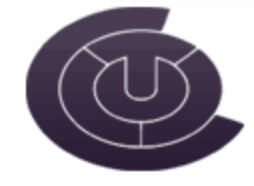CIUTI Policy Statement
May 2025
Translators and interpreters face many challenges in today’s rapidly changing world. Is there still willingness to continue to build the human capital needed in many areas to make communication available to all? Or do we think that language technologies have solved the problem?
CIUTI acknowledges the role of translation and interpreting technologies in today’s society. Our member institutions’ curricula include courses on these technologies and we cherish our strong ties with the language industry that increasingly makes use of them. As academic institutions we are contributing to the development of technologies and have a duty to critically reflect on their use. Training language models is the easiest part of the technology; training humans to skilfully and critically work with them is the hardest part. So why are we still investing in the latter? There are a few reasons for this:
Language technologies are now used in every walk of life and are designed to meet users’ needs. However, research into the quality of machine translation and interpreting is severely lacking, particularly given the importance placed on these technologies. The language technology industry acknowledges that the language machines produce is not always accurate yet quality issues have real-life consequences for the people who depend on translation and interpreting. We train students to skilfully intervene where the machine goes wrong and we give them the degree of digital literacy needed to advise stakeholders on the use of technologies.
Whether a machine or a human being, traduttore traditore. Trained interpreters and translators are expected to minimise errors through thorough research, sound revision processes and a critical mindset. Trained language models have no such safeguards. Human supervision is the only way in which machine translation can attain the same level of reliability as human translation and interpreting. Our training programmes seek to equip students with the tools to make translation and interpreting safe again.
Users place trust in machine translations and rely on their output for decisions they make. When these decisions turn out to be wrong, these people are literally left standing alone. Providers of fully automated translation and interpreting services request users of these services to exempt them from the (legal) consequences of mishaps. This lack of accountability is easily understood: language technologies have reached such a level of complexity that the output cannot be explained or motivated in any credible way. Our institutions train students to provide ethical and explainable services, and to motivate every decision in the translation and interpreting process.
Language models feed on vast amounts of data, provided willingly or unwillingly by every human being who uses them. When tools are used for translation and interpreting purposes, the message to be translated and all the personal information it contains, becomes part of the dataset. In such a context, keeping information confidential comes at a price and requires considerable upfront investments in equipment. Our institutions promote confidentiality as a basic right, not as a commodity, and train their students to use technology accordingly.
In many countries legal or regulatory requirements are in place that compel service providers to seek language assistance. These requirements invariably use vocabulary stressing the human component of language assistance. This comes as no surprise, as true justice, fair trial and sound medical treatment can only be guaranteed by human providers, including human providers of language assistance. Our programmes train students to take up these essential tasks in modern societies.
While we acknowledge the growing language technology industry and the advancements being made daily, CIUTI stands behind the need for well-trained translators and interpreters who are able to utilize these tools productively to enhance/enable successful communication. CIUTI also encourages industry providers of these language technologies to continue to engage in thoughtful research which carefully explores the accuracy, usability and ethical dimensions of language technologies. Our member universities are eager to partner in these explorations…
Founded in 1960, CIUTI has developed from a European-based organisation into a worldwide association with 60 institutional members in four continents. Its mission is to promote quality and excellence in training and research in translation, interpreting and related disciplines.
